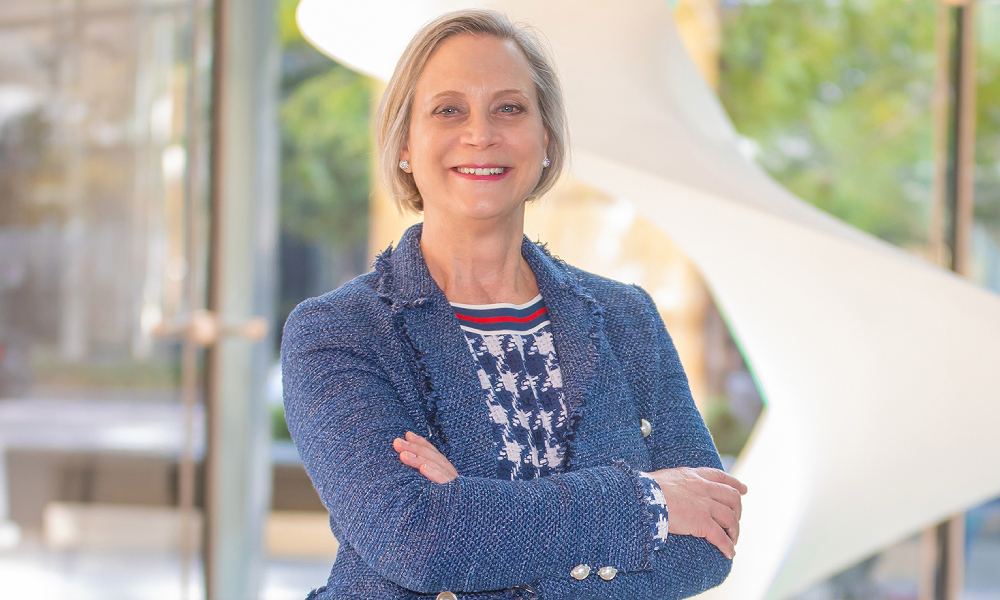
New hiring practices generate wider pool of candidates, says general counsel, Trish Callon

As part of a drive to improve diversity and inclusivity within the legal department and the leadership team, legal leaders at Sun Life Financial Canada recently spearheaded a series of new hiring initiatives, intended to transform the process for hiring and promoting employees.
The legal department has modified its talent hiring strategies to provide more opportunities for women and minorities. As a result, under-represented groups now make up more than 40 per cent of the legal team, while the leadership team is comprised of more than 50 per cent women. Diversity, equity and inclusion objectives are currently focused on the hiring, retention and promotion of Black employees.
“Like many people who choose the law as a profession, I was drawn to it because of my innate sense of equality and justice, so issues of human rights and equity and systemic racism really strike a chord with me, both personally and professionally,” says Trish Callon, senior vice president and general counsel at Sun Life Financial Canada. “The murder of George Floyd created a real sense of urgency which has led to many organizations, including Sun Life, really stepping up, not only to condemn systemic racism, but also to commit to increasing the number of under-represented minorities – particularly Black people – in our ranks.”
The first change to the hiring process was to introduce gender-neutral role descriptions by removing masculine-coded language which may deter women from applying for a job. Secondly, the team focused on finding slates of candidates who were diverse in terms of gender, ethnicity, seniority and in terms of practice area.
The next change was to introduce competency-based questions to the interview process, which serve to open the door to a wider pool of candidates from more diverse backgrounds.
“It’s often tempting for us to look for someone who has subject-matter expertise because we feel that we need someone who can hit the ground running because they are an expert in pension law or an expert in disability claims litigation for example, and while that expertise is helpful, it’s not the most important skill,” says Callon. “What we are really looking for are people who are clear communicators, people who are able to influence outcome, and people who are collaborative, and so in testing for those skills by asking competency-based questions, it helps to bring in more people with potential and eliminate that bias that you might get if you only focus on subject-matter expertise.”
Callon notes that her diverse legal team offers more creative problem-solving and decision-making skills while also helping to attract top talent as more people are able to imagine themselves in the senior ranks of the organization.
As part of its commitment to diversity, equity and inclusion, Sun Life aims to increase the representation of women in senior management to 50 per cent globally by 2025, and under-represented groups in senior management to 25 per cent in North America by 2025, with specific objectives for inclusion of Black and Indigenous people, and people of colour. The organization also plans to boost diversity at all levels of the organization, so as to create a strong pipeline for future leadership.
Callon and her team are focused on increasing relationships with vendors and suppliers that are owned by women or by Black and Indigenous people, and people of colour. They are also in regular communication with law firm partners to assess diversity, and goals for improvement.
As a member of Sun Life’s Canadian Allies Acting for Change, Callon helped to roll out a tool called Kaleidoscope which helps teams to focus on diversity and inclusion, while a communication and chat feature enables discussions. A forum at Sun Life called Diversity Dialogues also offers an opportunity for discussions and thought leadership from external speakers.
Coaching and mentoring women – both at Sun Life and in the broader community – is a passion of Callon’s. She actively participates in the organization’s leadership program that is intended to help hire potential directors, and regularly speaks to people who reach out to her for career guidance.
“I’m in a position of influence because I’ve had a lot of privilege in my career, so I feel like I really want to use my influence to sponsor people – and particularly to increase my focus on diversity, equity and inclusion,” says Callon. “There’s still a lot of work to do but I think we’ve laid up a good foundation for achieving some very specific objectives. It’s important for me to be constantly learning and listening to be able to hear someone else’s perspective.”